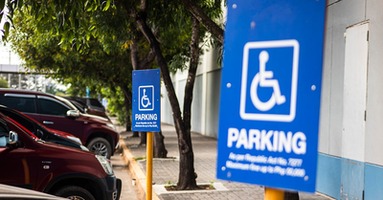
Common Myths About Disabled Parking Permits for Pregnant Women
Pregnancy is a time of joy and excitement, but it can also bring about a host of physical and emotional challenges. As the body undergoes significant changes to support the growing baby, many women experience discomfort and mobility issues that can make daily activities more difficult. For some pregnant women, these challenges are severe enough to necessitate additional support, such as a disability pass.
Unfortunately, there are many misconceptions surrounding the issue of disability passes for pregnant women. These myths can lead to confusion, frustration, and even stigmatization, making it harder for pregnant women to access the support they need. This article aims to address and debunk some of the most common myths about disability passes for pregnant women, shedding light on the realities of who qualifies for a disability tag and why.
Understanding Disabled Parking Permits
Before diving into the specific myths surrounding disability passes for pregnant women, it's important to have a clear understanding of what these tags are and how they function.
What is a Disabled Parking Permit?
A disabled parking permit, also known as handicap pass or placard, is an official document issued by a governmental authority that allows individuals with disabilities to park in designated spaces that are closer to building entrances. These spaces are typically wider and more accessible, making it easier for those with mobility challenges to navigate parking lots. The tags are issued to individuals with conditions that significantly impair their ability to walk or otherwise navigate public spaces.
Who Qualifies for a Disabled Parking Permit?
Eligibility criteria for pregnant women's disabled parking permit generally requires a medical condition that significantly impairs a person’s ability to walk or navigate public spaces. Common qualifying conditions include:
- Severe arthritis
- Cardiac conditions
- Respiratory disorders
- Neurological impairments
- Post-surgical recovery
- Pregnancy-related complications (in some cases)
It is crucial to understand that the criteria for obtaining a handicap tag can vary by jurisdiction. While being pregnant itself is not typically considered a disability, complications that arise during gestation can sometimes meet the criteria for a handicap tag.
Common Myths About Disabled Parking Permits for Pregnant Women
Despite the clear guidelines surrounding disability tags, there are several myths and misconceptions that persist, particularly when it comes to pregnant women. These myths can create barriers for those who need assistance and perpetuate misunderstandings about the purpose and function of disability tags.
Myth 1: Pregnancy Alone Doesn't Qualify for a Disability Pass
One of the most common myths is that being pregnant alone is never a qualifying condition for a disability tag. While it is true that a normal, healthy pregnancy typically does not qualify someone for a special pass, this myth overlooks the fact that many women experience maternity-related complications that can significantly impair mobility.
The Reality
Pregnancy is a complex medical condition, and each woman's experience is unique. Some women may go through gestation without any major issues, while others may develop complications that severely limit their ability to move around safely and comfortably. Conditions such as gestational diabetes, preeclampsia, severe sciatica, or pelvic girdle pain can make walking difficult or even dangerous. In such cases, a disability tag may be necessary to ensure the safety and well-being of the mother and her unborn child.
Healthcare providers play a key role in determining whether a pregnant woman qualifies for a disability tag based on her specific circumstances. If a healthcare provider certifies that a pregnant woman's condition impairs her mobility to the extent that a pass is necessary, she may be eligible to receive one.
Myth 2: Disability Tags Are Only for Permanent Disabilities
Another widespread misconception is that accessible tags are only issued to individuals with permanent disabilities. This myth can discourage pregnant women and others with temporary mobility challenges from applying for a disability pass, even when they genuinely need one.
The Reality
Accessible tags are available for both permanent and temporary conditions. While permanent passes are issued to individuals with long-term or lifelong disabilities, temporary passes are designed to assist those with short-term conditions that impair mobility. Pregnancy-related complications often fall into the category of temporary conditions, making many pregnant women eligible for a temporary parking pass.
Temporary passes are usually issued for a specific period, such as six months, and can be renewed if the condition persists. This flexibility allows pregnant women to access the support they need during the most challenging phases of their motherhood journey, without the need to meet the criteria for a permanent disability.
Myth 3: Pregnant Women Who Park in Disabled Spaces Are Abusing the System
Some people believe that pregnant women who use accessible parking spaces are taking advantage of the system or "cheating" by using passes that they don't really need. This myth can lead to unfair judgment and stigmatization of pregnant women who rely on disability passes for legitimate reasons.
The Reality
Using a disability pass is not a matter of choice but of necessity. Pregnant women who qualify for a tag do so because they have been certified by a healthcare provider as having a condition that significantly impairs their mobility. These conditions can make walking long distances or navigating parking lots difficult, painful, or even dangerous.
The idea that pregnant women are abusing the system by using accessible parking spaces fails to recognize the very real challenges that many women face during the maternal phase. It's important to trust that the healthcare professionals who issue these passes are acting in the best interests of their patients and that the women who use them are doing so out of genuine need.
Myth 4: Disabled Parking Permits for Pregnant Women Are Easy to Obtain
There is a common belief that disability passes are easy to obtain and that anyone, including pregnant women, can get one without much difficulty. This myth can lead to resentment and misunderstandings about who actually qualifies for a disability tag and why.
The Reality
Obtaining a disability pass is not a simple or automatic process. It involves a thorough evaluation by a healthcare provider, who must determine whether the individual's condition meets the criteria for a disability pass. In the case of being pregnant, this means assessing whether maternity-related complications are severe enough to significantly impair mobility.
The application process also varies by jurisdiction and often requires detailed medical documentation and approval from a governmental authority, such as the Department of Motor Vehicles (DMV). This process ensures that only those who genuinely need a disability pass receive one, and that the system is not abused.
Myth 5: Pregnant Women Shouldn't Need Special Accommodations
Another myth is that pregnancy is a natural condition and that women shouldn't need special accommodations, such as a handicap pass, during the maternal phase. This belief can lead to a lack of understanding and support for pregnant women who are struggling with mobility issues.
The Reality
While being pregnant is indeed a natural condition, it can also be a physically and emotionally challenging time. For some women, the physical changes and complications that arise while expecting can be debilitating. Conditions such as severe sciatica, pelvic girdle pain, and preeclampsia can make it difficult to perform everyday tasks, including walking and navigating public spaces.
Handicap passes are not about giving pregnant women "special treatment," but rather about providing necessary support to those who are facing significant challenges during gestation. These passes help ensure that pregnant women can access essential services and maintain their independence during a time when they may be particularly vulnerable.
Myth 6: Disability Passes Are Only Useful for Parking Close to Entrances
Some people assume that the only benefit of a disability tag is the ability to park closer to building entrances. This myth overlooks the broader range of benefits that disability passes provide, particularly for pregnant women.
The Reality
While parking closer to entrances is a significant benefit, disability passes offer much more than just convenience. For pregnant women, these special tags can provide critical support in a variety of ways, including:
- Reducing Physical Strain: Accessible parking spaces are typically wider and more accessible, making it easier for pregnant women to get in and out of their vehicles, especially if they are experiencing discomfort or mobility issues.
- Enhancing Safety: Parking in a designated space can reduce the risk of falls, which is particularly important for pregnant women who may have balance issues or be at risk for complications such as preeclampsia.
- Providing Peace of Mind: Knowing that they have a reserved parking space can reduce stress and anxiety for pregnant women, making it easier to focus on their health and well-being.
Myth 7: A Disabled Parking Permit Isn't Necessary if the Pregnancy is Healthy
Many people believe that as long as your pregnant state is healthy, there is no need for an accessible tag. This myth ignores the fact that even a healthy expecting mother can involve significant physical challenges that make everyday tasks more difficult.
The Reality
Even in a healthy pregnant state, the physical demands on a woman's body can be substantial. As the maternal phase progresses, the added weight and pressure on the joints, back, and pelvis can lead to discomfort and mobility issues. For some women, these challenges may be severe enough to warrant an accessible tag, even if the pregnancy is otherwise healthy.
Healthcare providers are trained to assess the specific needs of each patient and determine whether an accessible tag is appropriate. It's important to trust that their recommendations are based on a thorough understanding of the patient's condition and not simply on whether the pregnancy is considered "healthy."
Myth 8: Disability Passes Are Permanent, Even for Pregnant Women
Another misconception is that once a disability pass is issued, it is permanent and cannot be returned or revoked, even after the condition has improved. This myth can lead to confusion about the purpose and duration of disability passes.
The Reality
Disability passes can be issued for both permanent and temporary conditions. For pregnant women, tags are typically issued on a temporary basis, with an expiration date that reflects the expected duration of the condition. Once the pregnancy is over and the mobility challenges have resolved, the tag is no longer needed and should be returned or allowed to expire.
Temporary tags are an essential tool for providing short-term support to individuals who need it, without granting unnecessary long-term access to accessible parking spaces. This system ensures that accessible parking spaces remain available for those who genuinely need them.
Section: Disabled Parking Permits for Women During Pregnancy
Pregnancy is a time of great change and adaptation for a woman's body. As the maternal phase progresses, the physical demands on the body increase, and many women find themselves dealing with a range of discomforts and mobility challenges. For some women, these challenges are severe enough to necessitate additional support, such as a handicap tag.
When is a Disabled Parking Permit Necessary During Pregnancy?
While being pregnant itself is not a disability, there are certain situations in which a disability pass may be necessary. These include:
- Severe Sciatica: Sciatica is a condition that causes pain to radiate along the sciatic nerve, which runs from the lower back down the legs. During gestation, the growing uterus can put pressure on the sciatic nerve, leading to significant pain and difficulty walking.
- Pelvic Girdle Pain (PGP): PGP is a common condition during gestation that causes pain in the pelvic region. This pain can make it difficult to walk, stand, or even sit comfortably.
- Preeclampsia: Preeclampsia is a serious gestational complication characterized by high blood pressure and damage to other organs, often the kidneys. Women with preeclampsia may experience swelling, sudden weight gain, headaches, and vision changes, all of which can impair mobility.
- Gestational Diabetes: Gestational diabetes can lead to excessive weight gain and increased pressure on the joints, making it difficult to move around. In some cases, it may also cause complications that require bed rest or limited mobility.
- Multiple Pregnancies: Women carrying twins or multiples may experience more significant physical challenges due to the increased weight and pressure on their bodies.
How to Apply for a Disabled Parking Permit During Pregnancy
If you are experiencing mobility challenges during pregnancy and believe that a disability tag would be beneficial, the first step is to consult with a HandicapMD healthcare provider. Discuss your symptoms and mobility challenges with your doctor, and ask if they believe you qualify for a disability tag. The healthcare provider will complete the medical certification portion of your application, so it's important to have this conversation early in the process.
If the healthcare provider agrees that a tag is necessary, they will complete the required medical documentation to support your application. You will then need to submit this documentation to the appropriate governmental authority, such as the DMV or equivalent agency in your jurisdiction.
The application process may vary depending on where you live, so it is important to follow the specific guidelines in your area. In most cases, you will need to provide the following:
- A completed application form
- Medical documentation from your healthcare provider
- Proof of identity and residency
- A processing fee (if applicable)
Once your application is approved, you will receive your disability tag, which can be used in designated parking spaces. If your condition improves or the tag is no longer needed, you should return it to the issuing authority.
The Benefits of Having a Disability Tag During Pregnancy
Having an accessible pass during pregnancy can provide a range of benefits, including:
- Reduced Physical Strain: By allowing you to park closer to entrances, a disability pass can help reduce the physical strain of walking long distances, especially when carrying heavy bags or dealing with mobility challenges.
- Increased Safety: Designated handicap parking spaces are often located in safer, more visible areas of parking lots, reducing the risk of accidents or falls.
- Greater Peace of Mind: Knowing that you have access to a reserved parking space can reduce stress and anxiety, making it easier to focus on your health and well-being during pregnancy.
- Enhanced Quality of Life: With a disability pass, you can maintain your independence and continue to participate in everyday activities with greater ease and comfort.
Conclusion
The myths and misconceptions surrounding handicap tags for pregnant women can create unnecessary barriers for those who genuinely need assistance. By debunking these myths and providing accurate information, we can help ensure that pregnant women have access to the support and resources they need during this important time in their lives.
A disability tag is not about special treatment; it is about providing necessary support to those who are facing significant challenges during pregnancy. Whether dealing with severe sciatica, pelvic girdle pain, preeclampsia, or other pregnancy-related complications, a disability tag can make a meaningful difference in the daily lives of pregnant women.
If you are pregnant and experiencing mobility challenges, don't hesitate to speak with your healthcare provider about the possibility of obtaining a handicap tag. With the right support, you can navigate your pregnancy with greater comfort, safety, and peace of mind.
References
- U.S. Department of Justice, Civil Rights Division. (2022). Americans with Disabilities Act (ADA).
- Mayo Clinic. (2023). Pregnancy Complications.
- American Pregnancy Association. (2023). Pregnancy and Disability.
- State of California, Department of Motor Vehicles. (2023). Disabled Person Parking Placards.
- National Health Service (NHS), UK. (2023). Blue Badge Scheme.
- U.S. Department of Labor. (2023). Pregnancy Discrimination.
- American Academy of Orthopaedic Surgeons (AAOS). (2023). Sciatica.
- National Institute for Health and Care Excellence (NICE). (2023). Pelvic Girdle Pain (PGP).
.png)






